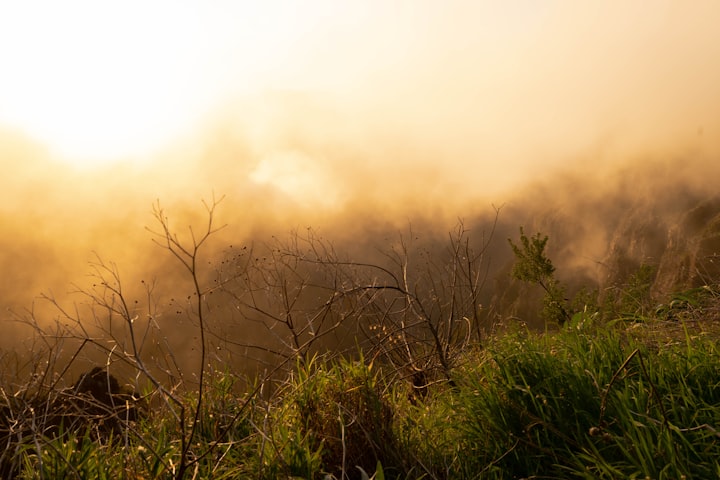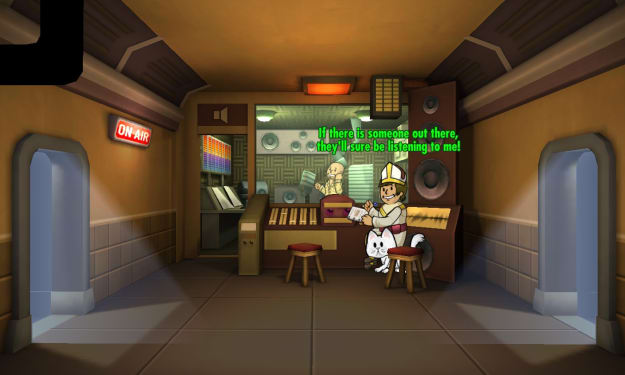The Essential Guide to Doomsday Prepping
Prepping basics for any crisis

Doomsday prepping is about being ready for any impending disaster or emergency. This could be concerns over global pandemics, recession, cyber attacks, world wars, natural disasters, or any other unforeseen event that could have a negative impact on the local or global community. Some people prep because of the fear of these disasters, while others simply want to feel prepared for the worst. Others fear apocalypses and other powerful, world devastating events. No matter the motivation for prepping, most people who do it simply want to feel secure in an event where resources or daily life is compromised. Regardless of whether a crisis is global or personal, having even a bit of the prep work ready
If you're considering prepping for any reason, it can certainly feel like a daunting task. Looking at the list of necessities can be overwhelming, and sometimes expensive when looking at the totals. Luckily, there are lots of ways to begin prepping that don't have to ultimately break the bank, and strategies that can ease you into becoming prepared for absolutely anything.
Decide Why You’re Preparing
While there are hundreds of reasons that someone might start doomsday prepping, choosing the reason that seems most likely or reasonable to you will help you to narrow down the list of everything you need. Knowing your 'why' will help you maintain your focus on the task at hand; once you feel you're reasonably prepared for what you consider the most likely event, you can easily expand from there. Most disasters will have similar lists of items that you should keep stocked, but it's easy to get sidetracked from the core necessities when you're busy worrying about every single possibility.
Prepper Basics
In general, prepper basics regardless of potential event or disaster will cover the same basics; food, water, shelter, and medical necessities. In general, you want to be able to accommodate for supply chain shortages and potential disruption of access to necessities for yourself and your loved ones. You may worry about self defense, or the ability to continue to care for your health in a time when access to medical intervention might become scarce. Even basic resources such as electricity, heating, and other comforts may be on your mind; if you live in Canada, you know there's going to be a harsh winter to contend with. If you're in hotter, desert-like areas that reach excessive heat temperatures, being able to keep cool becomes a concern instead. Tools and generators may come into play depending on where you live.
Prepper Basics Checklist:
- Water purification
- Shelf stable, non-perishable food -
- Energy sources
- Tools
- Medical supplies
- Emergency cash supply
- First aid kits and emergency care supplies
- Self-defense
Educating Yourself For Crisis Times
Having the supplies is worthless if you don't know how to use them. While you don't have to know absolutely everything on the following list, networking within your community to find people who can fill in the blanks on the skills list can help to encourage a better developed community. Gather the skills and knowledge needed to DIY through life if you have to, but make sure you've got people within the community that can fill in the gaps and vice versa.
Once you know the skills you hope to pursue, develop the skills before they're needed. If you know nothing about repairing clothing, pick up a needle and thread, and fix a hole in some torn jeans or socks. If you don't know how to preserve food, learn by making your own jerky or canned vegetables. Taking some time to learn about sustainability and local resources that can be foraged can allow you to maintain a livable lifestyle over an extended crisis.
Helpful Knowledge Checklist:
- Basic gardening and farming
- Food preservation
- Herbal medicine knowledge
- Creating clothing, leatherwork and/or textiles
- Hunting/Fishing
- Local foraging
- Food prep without modern kitchens
- Maintenance of self-defense items/skills
- Self-defense skills
- First aid skills
- Wilderness survival techniques
- Water and air purification
- General disaster safety and survival knowledge
- Creating tradable goods for bartering
- General medical knowledge (i.e. how to recognize and treat common ailments, care for a wound or break, when and how to wrap a tourniquet, and how to perform stitches if absolutely necessary.)
- Communications knowledge
- Construction and mechanical skills
- Cleanliness and sterilization
- Accommodating to changes in child, elderly, and special needs care
- Overall sustainability within the home
Stay Aware of Important Issues
Prepping isn't just about supplies; it's about being aware of incoming problems and issues. If your concerns lie in environmental crisis, stay on top of what is happening regarding climate issues. If you're concerned about economic crisis, take the time to educate yourself on what is happening in the political and economic hemisphere. Prepping involves regular research, so taking time daily to stay on top of the issues of the day can help you to learn the patterns associated with impending danger and crisis. It's also critical to keep a range of sources on major issues; even if you lean left or right politically, knowing both sides of the story often brings important details to light that you may not notice through one party's lens.
Stockpile and Store What You Expect to Need
Once you've established a list of what is important to you to stock and store first, start chipping away at it at a reasonable rate. Consider the space you have available for storing supplies that you may need. Can you fit several months worth of goods in your home? Some people find it better to have an external location from their home for storing things, as long as they know that they will be able to easily and safely access this external storage site.
Prepping is an investment, so consider what you generally use, and the standing shelf life of the goods you store. In some cases, such as food, it's good to be rotating the items you have in storage, and having it noted somewhere the purchase and use by dates. For example, we see canned goods as a forever item, but high-acid canned goods should only be safely consumed within one to two years of the expiration date. If you have low-acid canned items stored, they'll usually last for two to three years past the expiration date.
Keeping everything in a rotation ensures that you know the rate of usage of each item, and can ensure a longer storage period in case of crisis. A canned good collection that lasts for up to five years is hardly a help to you if you bought it four and a half years before you were in a crisis where you'd be relying on your personal storage of goods and supplies. This will also keep you from spending money on supplies that seem like a good idea at the time, but turn out to be something you don't like, don't know how to use, or will not actually use. If you buy a food item and see that it's hardly been touched over an extended period of time, consider selling or donating it in favor of a supply you get significantly more use out of. If you're not spending money on those items, you're also not wasting valuable storage space.
Of course, pace yourself in your prepping. You still have daily needs and expenses that need to be covered, and hopefully you're able to get money into savings. Picking up couponing can be a great way to save the money, if you've got the time to learn. Equipment that supports your storage, such as dehumidifiers, power generators, or storage equipment may be more pricey, but will be worth it in the long run. If you're able to save where you can with coupons, these bigger purchases become far more manageable, and can make your life easier overall.
Prepare For Your Dietary Needs
If you're currently on a restrictive diet, whether medically recommended or lifestyle based, take some time to consider how you're going to accommodate these things. If you were to reach a point of food insecurity during a crisis, rationing and making adjustments may become necessary.
Follow a Fitness Routine
Supplies and knowledge are important, but being physically able to handle potential crisis situations is just as essential. A number on a scale isn't going to establish what you can handle, but keeping yourself in reasonably good health and physical fitness can offer you resilience in a crisis.
The fitness routine you choose should be relevant to you; this might mean a focus on cardio, strength training, or general overall health routines. Not only will it help you to be more physically capable, but it can help prevent physical exhaustion and burnout. Having some awareness of self-defense can also give you an upper hand should you be in a dangerous situation, while also increasing your physical strength. It's not necessary to be a black belt in a martial art, but having some degree of training may be the thing that one day keeps you alive in a crisis.
Establish an Emergency Fund
An economic crisis truly isn't a stretch of the imagination in the modern world. Between inflation, global conflict, and a world in post-pandemic recovery, we're seeing that our economy and jobs can easily be impacted by today's global issues. You don't need to have millions of dollars set aside, but having three to six months worth of expenses put aside could mean the difference between living comfortably through an economic crisis and struggling through potential homelessness and resource insecurity. Keeping money in a high interest savings account, or dispersed through reliable investments and assets can offer protection through an economic downturn and possible loss of income.
Understandably, many of us aren't in an economic position to be dumping money into savings on top of bills, daily needs, and our desire to prep. Make sure that you're ultimately taking care of yourself now. We don't know when a disaster may strike, but you also want to prevent personal disaster first. Make sure the initial costs of today are covered before pouring the money into tomorrow, allow money to grow in a high interest savings account (no matter how much or little can be afforded to it) and take a moment to do your research, finding the best quality for the best price, sales, coupons, etc.
Consider Entertainment
While some of the skills that would help in a time of crisis may absolutely be a type of hobby, consider that if you have young children, you may need to be able to keep them entertained, especially in a dangerous crisis. This may not be a top priority in general, but if you're prepping in a way that is meant to keep you in your stronghold, don't neglect the things that will help to pass the time when you find yourself bored or in your head.
This isn't just for spending the time; offering yourself and your loved ones some manner of entertainment can also support your mental health, especially in a time where you may be locked down. If mental illness is a killer now, consider how much harder it will be to shut down the voices of anxiety or depression in a crisis environment. Make sure that there is some way to support your mental health, even if it's just a stockpile of board games and creative hobby supplies.
Summing up
Prepping is a great hobby and lifestyle choice. It gives you the opportunity to learn new skills, explore new hobbies, and gain a greater appreciation for your surroundings. It’s also a great way to prepare for both expected and unexpected life events. With a little bit of research and practice, you’ll be well on your way to being a prepper! That said, it’s important to remember that prepping is not an event. You don’t wait for an emergency to happen before you start prepping. Instead, it’s an ongoing process that requires discipline and prioritization.
Enjoy the article? A small token of encouragement is always appreciated, even if it's just a coffee to keep me writing!
About the Creator
Autumn Basque
Just a ghostwriter who is looking for life. Listen, being a ghost is neat, but I want to be seen.
I cover a range of topics and interests, following my hyperfixations as they come.







Comments (5)
Quite comprehensive, useful, and ever so important. We do not know what is to lie ahead, and this world is more uncertain than ever, thanks to the pandemic for starters. We have seen food shortages at supermarkets first hand, and therefore it pays to be prepared. Have some cash available, and an emergency fund.
This article provides a comprehensive and practical guide to doomsday prepping, from identifying your motivations and basic necessities to developing useful skills and staying aware of important issues.
thx for information
this is great :)
This was very helpful. I never considered tradable good for bartering. But it makes sense in circumstances when you need something, you’ll have something to offer.